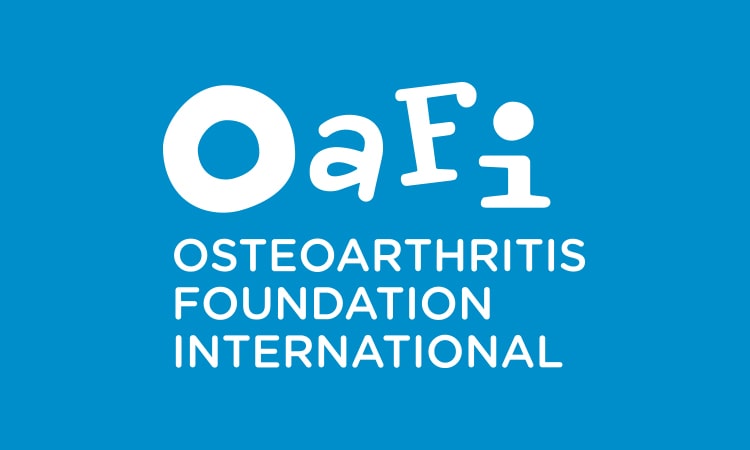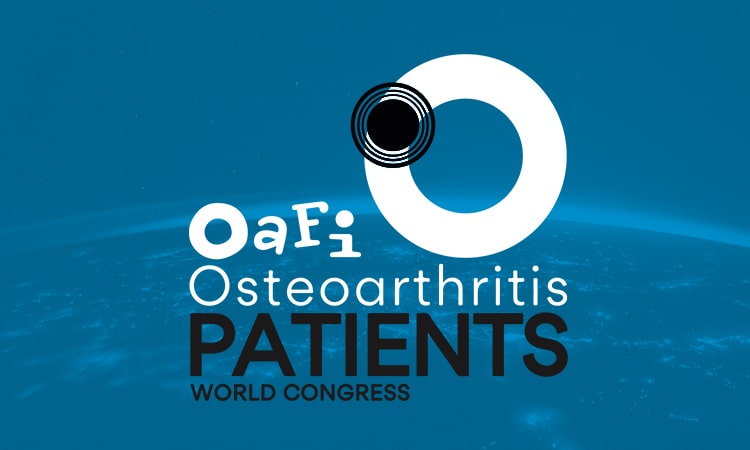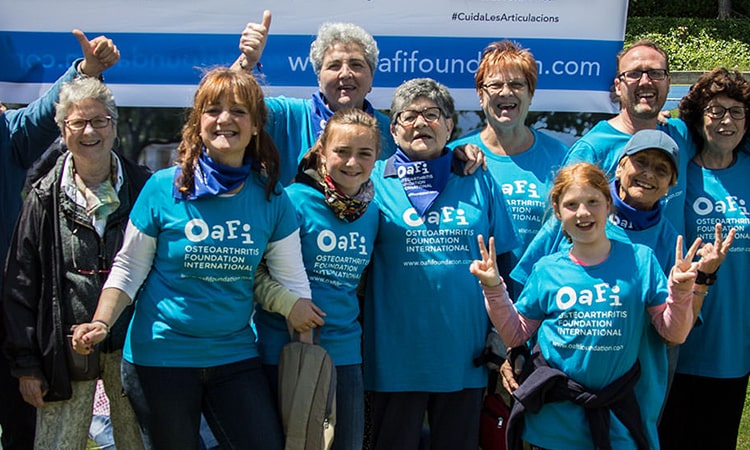- Foundation
- Actions
- Osteoarthritis
- Actuality
- OAFI Radio/TV
- Get Involved
- Contact
-
-
-
OAFI
Osteoarthritis International FoundationC/ Tuset, 19 · 3º 2ª
08006 Barcelona
(+34) 931 594 015
info@oafifoundation.comSchedule:
Monday-Thursday 9AM-6PM
Friday 8AM-3PM
-
-
-

-

-

Arthrotest

Arthrotest
THE GENETIC
KEY IN THE PROGRESSION OF ARTHROSIS
Osteoarthritis is a pathology with an important genetic component that influences both its development and its progression. The influence of the characteristic genetic factors of each patient can affect the articular cartilage, making it more or less prone to its degeneration. The existence of polymorphisms in different genes may influence the predisposition and/or severity of osteoarthritis.
For years it has been accepted that osteoarthritis is a polygenic disease. Genetics together with clinical factors influence not only the appearance of osteoarthritis, but also the progression of the disease.
Recent epidemiological studies estimate that knee osteoarthritis is hereditary in 40%. As well as the progression of the disease by osteophytes and the narrowing of the intra-articular space is also hereditary in 60-70%.
ARTHROTEST:
PERSONALIZED MEDICINE
Knowledge of human DNA has led to a radical change in the diagnosis and prognosis of genetically based diseases.
In this field, knowledge has made it possible to speed up the identification of genetic variants (genetic polymorphisms) associated with the risk of suffering certain diseases and/or of suffering a more or less rapid progression of the disease, facilitating an early diagnosis and prognosis of the disease in each patient.
Currently the test is not marketed. If you are interested in receiving more information about the Arthrotest, write to us at: research@oafifoundation.com
Categories :
Recent Entries
Categories
- #ARTICULANDO25
- AECOSAR
- Artrosi
- Artrosis
- Blog
- Congresses
- deporte
- fibromialgia
- GOAPPS
- I+D
- Joint Health Tips
- Latest
- nutrición
- Nutrition Tips
- OAFI Friends
- OAFI News
- OAFI Radio
- OAFI SPACE
- OAFI SPORT
- OAFI WOMAN
- Osteoarthritis
- Osteoporosis
- Osteoporosis
- Pain
- Patient Area
- Research
- Responsabilidad Social Corporativa
- salud
- Sarcopenia
- Uncategorized
Tags
AECOSAR Artrosis ASPE Calidad de Vida Concienciación Dieta Lógica Dieta Sana DISFAGIA dolor Dra. Laura Isabel Arranz Fundación Internacional de la Artrosis Fundación OAFI GOAPPS I+D Investigación Joint Health menopausia Montaña Muntanya Médico de familia OA OAFI OAFI Foundation OAFI SPACE OAFI with You OA Patients OA Press release ONG Osteoarthritis Osteoporosis Patient Prevención Salud Articular SARCOPENIA SEMERGEN SER Sociedad Española de Reumatología SPMs TRIANKLE TRIANKLE PROJECT VD vitamina D Vitamin D World OA Day World Osteoarthritis Day
Help us improve the quality of life of Osteoarthritis patients.
BECOME A PARTNER
Help us improve the quality of life of osteoarthritis patients by becoming a partner.
BECOME A VOLUNTEER
The patient is the reason for being OAFI, become a volunteer and help us improve their quality of life.
MAKE A DONATION
Your help is very important to us, with it we can finance our founding work.
CONTACT
-
C/ Tuset, 19 · 3º 2ª
08006 Barcelona - (+34) 931 594 015
- info@oafifoundation.com
-
From Monday to Thursday
from 9AM to 6PM
Friday from 8AM to 3PM
The Foundation
Other Links

The OAFI mascot, called OAFITO, was created exclusively and altruistically by the artist Xavier Mariscal.




















